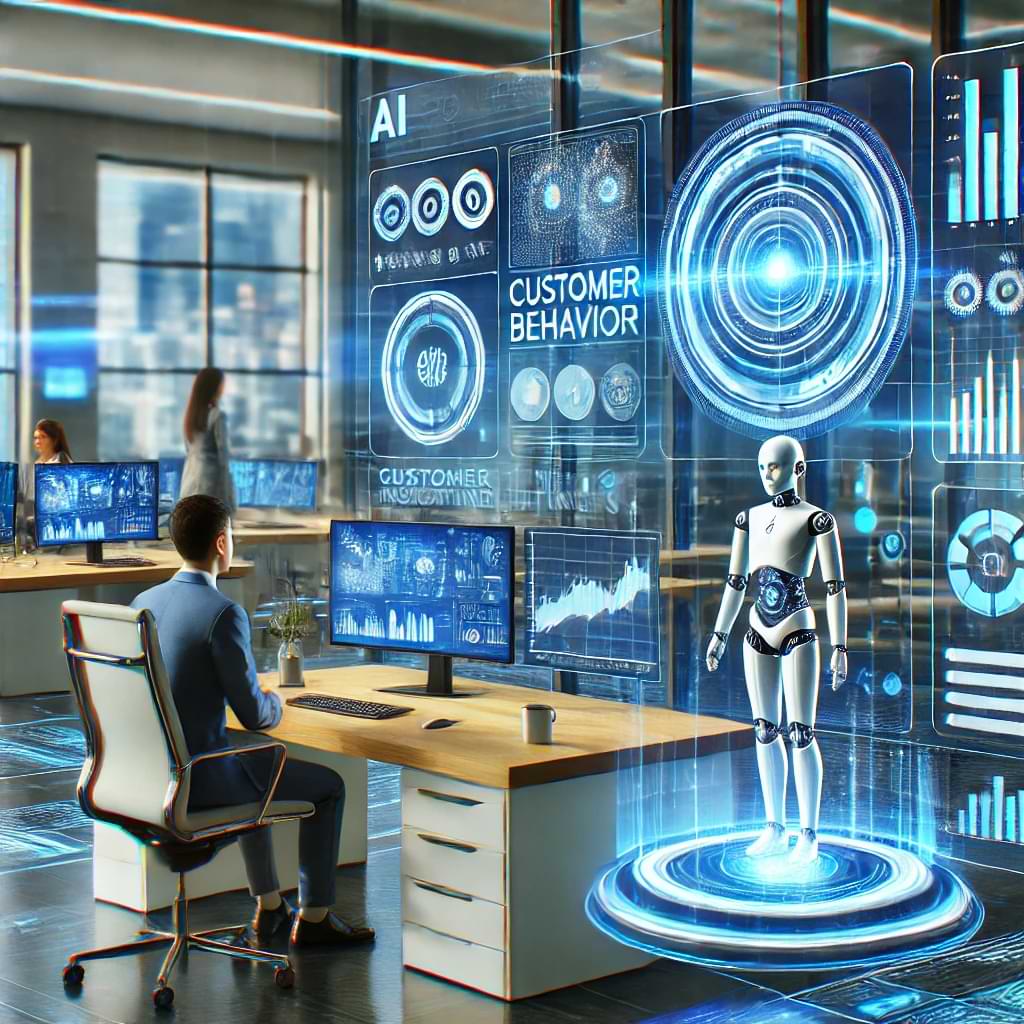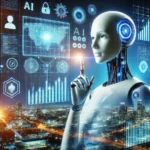Introduction
Artificial intelligence (AI) is reshaping industries worldwide, and business and marketing are no exceptions. From personalized customer experiences to data-driven decision-making, AI is optimizing processes, reducing costs, and enhancing efficiency. Companies leveraging AI-powered analytics, automation tools, and predictive insights are gaining a competitive edge in the digital economy.
In this article, we will explore how AI is transforming digital marketing, business strategies, and customer engagement.
1. AI in Digital Marketing: A Game Changer
AI has revolutionized digital marketing by improving targeting, personalization, and automation. Businesses can now understand customer behavior, optimize campaigns, and deliver personalized content at scale.
AI-Powered Personalization
One of AI’s most significant contributions to marketing is hyper-personalization. AI algorithms analyze user data to create tailored recommendations and targeted advertisements. Netflix, Amazon, and Spotify use AI to suggest content based on past behavior, increasing user engagement and customer retention.
Chatbots & Virtual Assistants
AI-driven chatbots enhance customer service by providing instant responses, handling inquiries, and resolving issues 24/7. Companies like Sephora and H&M use AI chatbots to recommend products and answer customer queries, improving user experience and reducing support costs.
Content Generation & Optimization
AI-powered tools like Jasper and Copy.ai help marketers generate engaging content by analyzing audience preferences and industry trends. AI also optimizes existing content for SEO, ensuring higher rankings on search engines.
Programmatic Advertising
AI automates ad placements by analyzing audience data in real-time, ensuring brands reach the right people at the right time. Google Ads and Meta’s AI-powered advertising platforms help businesses optimize their ad spend and maximize ROI.
2. AI-Powered Analytics: Unlocking Data Insights
Data is the backbone of business strategy, and AI helps organizations make sense of massive datasets quickly and accurately. AI-driven analytics improve decision-making, efficiency, and predictive accuracy.
Predictive Analytics
AI algorithms analyze historical data to predict future trends and customer behavior. Businesses use predictive analytics to optimize inventory management, pricing strategies, and marketing campaigns. Retail giants like Walmart and Target leverage AI-driven insights to anticipate demand and adjust supply chains accordingly.
Customer Segmentation & Targeting
AI identifies patterns in consumer behavior, allowing businesses to segment audiences more precisely. Companies can then craft personalized marketing strategies to target specific demographics, increasing conversion rates and customer satisfaction.
Real-Time Data Processing
Traditional data analysis is time-consuming, but AI processes data in real time, allowing businesses to make instant adjustments. AI-powered dashboards provide real-time insights into campaign performance, helping marketers optimize strategies on the go.
3. AI in Customer Insights: Understanding Consumer Behavior
Understanding consumer behavior is crucial for business success, and AI provides deeper insights into customer needs, preferences, and purchasing patterns.
Sentiment Analysis
AI-driven sentiment analysis tools monitor social media and online reviews to gauge public opinion about a brand, product, or campaign. Companies like Coca-Cola and Nike use AI to track customer sentiment and adjust marketing strategies accordingly.

Behavioral Prediction
AI analyzes customer interactions to predict buying intent. E-commerce platforms like Shopify and WooCommerce integrate AI to suggest products based on browsing history, increasing sales and engagement.
Customer Journey Mapping
AI tracks customer touchpoints across multiple channels, helping businesses understand how users interact with their brand. This insight enables companies to optimize their sales funnel and improve user experience.
4. AI-Driven Automation: Enhancing Efficiency & Productivity
AI automates repetitive tasks, freeing up human resources for strategic decision-making. Businesses use AI-driven automation to enhance productivity and streamline operations.
Marketing Automation
AI-powered tools like HubSpot and Marketo automate email marketing, social media scheduling, and customer segmentation. This reduces manual effort while improving campaign efficiency and effectiveness.
AI in Customer Support
AI-powered voice assistants and chatbots handle routine inquiries, allowing human agents to focus on complex customer issues. This reduces response times and improves customer satisfaction.
AI in Sales Forecasting
AI analyzes market trends and customer data to predict sales performance. Companies can optimize inventory, pricing, and sales strategies based on AI-driven forecasts.
5. AI and Ethical Considerations
While AI offers numerous benefits, ethical concerns such as data privacy, bias, and transparency must be addressed. Businesses should implement AI responsibly, ensuring compliance with data protection laws and ethical AI practices.

Conclusion
AI is revolutionizing business and marketing by enhancing customer engagement, optimizing data analysis, and automating processes. Companies that leverage AI-driven insights and tools will stay ahead in an increasingly competitive digital landscape. By embracing AI responsibly, businesses can unlock new opportunities for growth and innovation.






No responses yet